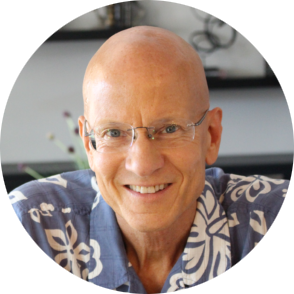# 1 Question: Protein in Vegetarian Diet?

Protein in found in What, You Gotta Be Kidding! … And you say, they are asking the WRONG question! Oh my!!
People never stop asking me, how do you get enough protein in a raw or vegan diet? This is the #1 question asked, which reveals how un-informed we are in this country.
In the past 29 years I have had no meat or dairy. In fact, I haven’t been sick in past 20 years. I have all day ‘natural’ energy, without the use of caffeine, and get plenty of protein.
The building blocks of proteins are called amino acids. Amino acids, in various combinations make up numerous types of proteins that make up muscle, bone, skin, hair, blood cells, collagen, and parts of cells throughout the body. Proteins are also used to make enzymes, hormones, and neuro-transmitters.
How to Get Protein in a Vegetarian Diet – Protein is in All Foods
Americans have been biased toward high protein foods, like meat, and most people who eat the Standard America Diet, have a misconception that meat and diary are the only sources of protein. People don’t associate greens and protein, yet protein is found in ALL natural food, and is greens are one of the best sources. Even 6% of the calories in fruit come from protein.
Greens and Protein
I get alot of my protein from greens, as well as sprouted legumes, and nuts and seeds (especially nuts and seeds that are cultured into non-dairy nut or seed yogurts). I use various powders from time to time to enhance the nutritional value of smoothies, such as LiyfEssentials.
I also use green powder blends that are high in protein and nutrients, that include spirulina and chlorella. Protein is in all plants, and eating a variety of raw foods all contribute to my protein intake.
Most of the protein the body uses in a day are re-cycled proteins in the body, and approximately 30% comes from the food we eat. To properly break down and recycle protein it takes proper levels of enzymes in the body. I endorse enzyme supplementation, even when eating plant-based, because most people are enzyme deficient due to years of eating enzyme-deficient food, and due to poor soil conditions. Even the best of plants don’t have the mineral and enzyme levels of years ago.
The other advantage in eating plant-based protein is that the body easily assimilates these types of proteins, and any metabolic waste created is excreted from the body. Animal protein is harder to break down and undigested animal protein, or the metabolic waste produced from animal products, can be stored in the body and easily putrefy.
The cleaner the body is the more nutrients from food get absorbed and used, thus requiring less food intake. On the other hand, the standard American diet contains an excessive amount of animal protein, and other enzyme deficient food, thus creating an abundance of waste that builds up over the years and leads to toxicity and disease.
Another huge advantage in eating plant-based protein sources over meat and dairy is that I am consuming loads of fiber, thousands of phyto-nutrients, and omega 3 fatty acids. These support intestinal health, are immune boosting, and anti-aging.
 Need I say anymore. Okay, now that I’ve answered the # 1 question, anyone out there want to join me in eating cleaner, having more energy, while avoiding sickness and disease?
Need I say anymore. Okay, now that I’ve answered the # 1 question, anyone out there want to join me in eating cleaner, having more energy, while avoiding sickness and disease?
PS – many top professional athletes have said that after converting to a plant-based diet, their performance levels improved.
Totally Plant Based is NOT For Everyone
For those who eat animal protein, my recommendation is to not eat it 3 times a day, but rather 3 times a week. But for those who eat animal protein, I highly recommend organic, or true grass fed meats. With all the GMO feed, antibiotic and hormone use, conventional meats are not healthy. GMO wreak havoc on the intestinal wall, which contributes to leaky gut conditions.
The key is eating a balanced meal. Protein, healthy fats, and veggies.
RDA Requirements are Misleading
And lastly, the RDA recommendations for protein is based on animal products. They know that a large percentage of the protein intake from animal sources is unusable, and not assimilated well, though the body is still given the task of dealing with it. Knowing this, the RDA has set higher for protein amounts to allow for the loss.
In other words, the true requirements of protein needed by the body are less than we’ve grown up believing. You can’t help but get enough protein eating a plant-based diet.
We are asking the WRONG QUESTION?
A study compared the profile of 30,000 non-vegetarians to 20,000 vegetarians and about 5,000 vegans, 5,000 flexitarians (vegetarian most of the time), and 5,000 people who eat no meat, with the exception fish. The average requirement on the low side is 40-55 grams of protein per day. Vegetarians and vegans can easily average more protein than the recommendation every day.
In addition, many meat eaters are actually consuming alot more protein than needed, which can have its side-effects. Bottom line, 97% of Americans get enough protein.
The question asked shouldn’t be directed toward protein consumption, but rather how much fiber do you consume daily? Why, because 97% of Americans are deficient in fiber. Read Source of Fiber post, and find out what fiber-rich foods we are deficient in, and which gender lacks the most fiber in their diet, men or women?
Fish Protein
For those who know the benefits of eating vegetarian, but still want to keep a small portion of animal-based protein in their diet, I would recommend wild-caught salmon. Looking for an easy, quick, and healthy ways to consume salmon is to purchase canned salmon. Of course, it needs to come from a reputable source … wild caught, not farmed, and through a company that pays attention to purity. Just 4 ounces of salmon will provide you with protein, but also a good amount of omega 3 DHA and the antioxidant astaxanthin. For those interested, click here for more information.
If you’ve enjoyed this post, Protein in Vegetarian Diet, leave a comment below:

Did you know, pea protein is a wonderful source of protein and found in many vegan protein powder sources?
Psst, peas are also high in fiber!
If you’ve enjoyed this post, Protein in Vegetarian Diet, leave a comment below:

David Cooley, CHC
Certified Health Coach
Food of Life Chef
Author
Information and material found on this website is for informational purposes only, and not intended to provide medical advice, nor should it be construed as such. The information is NOT intended as a substitute for the advice provided by your physician or other healthcare professional, or any information contained on or in any product label or packaging. Do not use the information provided on this site for diagnosing or treating a health problem or disease, or prescribing medication or other treatment. All content, including text, graphics, images and information available on this site is for general informational, entertainment and educational purposes only. Products, or information, are not intended to diagnose, treat, cure or prevent any disease. The content is not intended to be a substitute for professional diagnosis or treatment. Always speak with your physician or other healthcare professional before taking any medication or nutritional, herbal or homeopathic supplement, beginning any diet program or exercise program, or using any treatment for a health problem. If you have or suspect that you have a medical problem, contact your health care provider promptly. Do not disregard professional medical advice or delay in seeking professional advice because of something you have read on this website. The author of this site is not responsible for any adverse effects that may occur from the application of the information on this site and encourages you to make your own healthcare decisions, based on your own research and in partnership with a qualified healthcare professional.